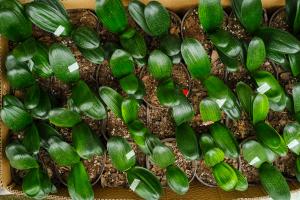Can You Put Bleach in Plant Water?
When it comes to caring for plants, there are many things that you need to keep in mind. One of the most important considerations is the type and quality of water that you give them. While it may seem like a good idea to add bleach to plant water, doing so can actually be quite harmful. In this article, we will explore why you should avoid using bleach in plant water and what you can do instead.
Why Adding Bleach to Plant Water is Not a Good Idea
Many people believe that adding bleach to plant water can help prevent the growth of harmful bacteria and fungi that can damage the plants. While this may be true to an extent, it is not recommended because the bleach can harm the plant's delicate root system and leaves. Bleach is a strong chemical that can kill not only harmful bacteria and fungi but also the beneficial microorganisms that reside in the soil and are essential for the plant's growth and health.
In addition, bleach can damage the plant's chlorophyll, which is what gives plants their green color and allows them to photosynthesize. Chlorophyll is critical to a plant's survival, and without it, the plant will wither and die. Using bleach in plant water can also lead to nutrient deficiencies in the soil, which can further harm the plant.
What You Can Do Instead
If you want to prevent the growth of harmful bacteria and fungi in your plant's water, there are several things you can do instead of adding bleach. Here are a few options:
Change the water regularly: One of the most effective ways to prevent the growth of harmful microorganisms in plant water is to change it frequently. Make sure to replace the water at least once a week, or more often if the plant is in a particularly warm or humid environment.
Use filtered water: If your tap water contains high levels of chlorine or other chemicals, consider using a water filter to remove them. This will help ensure that your plant's water is free of harmful substances.
Use natural plant treatments: There are many natural ways to prevent the growth of harmful bacteria and fungi in plant water. For example, you can use vinegar or essential oils like eucalyptus, peppermint or tea tree oil. These natural plant treatments will not harm the plant, and they can also enhance its growth and health.
Conclusion
In conclusion, adding bleach to plant water is not a good idea because it can harm the plant's delicate root system and leaves, damage the chlorophyll, and lead to nutrient deficiencies in the soil. Instead, changing the water regularly, using filtered water, and using natural plant treatments are recommended. By taking these simple steps, you can help ensure that your plant stays healthy and strong for years to come.

 how many times do yo...
how many times do yo... how many planted tre...
how many planted tre... how many pine trees ...
how many pine trees ... how many pecan trees...
how many pecan trees... how many plants comp...
how many plants comp... how many plants can ...
how many plants can ... how many plants and ...
how many plants and ... how many pepper plan...
how many pepper plan...





























